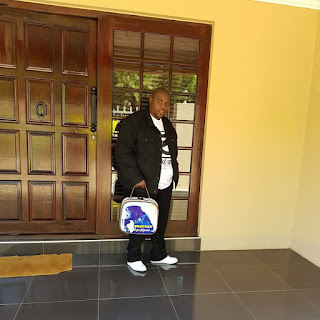 Three major solar projects are hanging in the balance on
the back of acute funding challenges, a junior minister said.
Three major solar projects are hanging in the balance on
the back of acute funding challenges, a junior minister said.
Energy deputy minister Tsitsi Muzenda last week told the
Senate that the $202 million Gwanda Solar Project, Munyati and Bulawayo-located
Insunkamini project were all in need of funding for them to take off and help
the country plug its power deficit.
“Most of our solar projects have been having challenges in
that people bid, they are given permission to do whatever they are supposed to
do, but at times those people would not be having (financial) resources.
“There is Gwanda, Munyati and the other one, all those
projects were supposed to be on course by now but funding has been our greatest
problem.
“You are aware that most of what is supposed to be used,
the solar panels and so forth are imported so the capital outlay is quite
massive,” Muzenda said.
While businessman Wicknell Chivayo’s Intratrek has been
linked to the Gwanda project, it is yet to take off.
“With the Gwanda one, the challenge has been that the
people who were supposed to finance that later were not happy with the local
partner so they have had to change whatever they had agreed to.
“We are hoping that very soon the Gwanda one will be on
course,” she said.
This comes as the Africa Enterprise Challenge Fund (AECF)
earlier this year announced it would avail additional funding for solar energy
projects in Zimbabwe.
AECF Fund Consultant, Oliver Bowler, is on record saying
funding would be made available to existing Zimbabwean solar energy projects
aimed at solar businesses so that they can scale-up to profitable levels.
The organisation has already made a $10 million commitment
towards solar energy projects in four African countries including Zimbabwe this
year.
“The funding will be used to scale businesses so that they
can reach more customers and improve people’s lives in rural areas.
“Because we will do this in several investments to many
companies we will therefore create a wider market which is investment-ready.
“This will make investors feel safe and comfortable in
committing their fund for a financial and social return in the solar household
system market,” he said then.
Bowler said the fund will provide grants from $250 000 to
$1,5 million for the development of different solar projects.
“These will be invested into businesses so that they can
grow and develop their business models to be more profitable and make a greater
impact for socio-economic and gender factors,” Bowler said. Daily News








0 comments:
Post a Comment